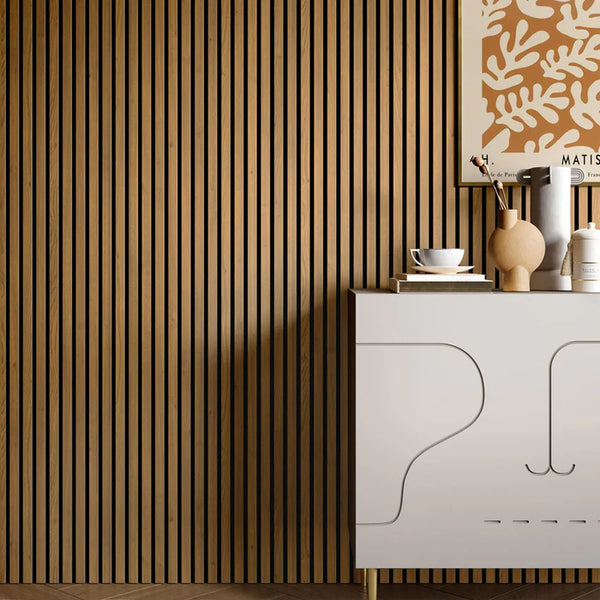

Wood Fence Panels: DIY Installation Tips for Homeowners
Discover easy DIY installation tips for wood fence panels that every homeowner can follow. Enhancing your outdoor space with privacy and style has never been more achievable.
Whether looking to create a serene backyard retreat or simply aiming to increase your home's curb appeal, wood fence panels offer a versatile and attractive solution.
This guide will walk you through the essential steps and considerations to ensure your fence installation is successful, durable, and aesthetically pleasing.
Planning Your Project
Before diving into the installation process, thorough planning is crucial. Determine the perimeter of the area you wish to enclose and calculate the number of panels needed.
Consider local zoning laws and homeowners association guidelines to ensure compliance. Selecting the right type of wood is also essential, as different woods offer varying levels of durability and resistance to weather conditions.
Surveying your property to identify any potential obstacles, such as underground utilities or uneven terrain, is an important preparatory step. This information will guide the placement of your fence posts and panels, ensuring a smooth installation process.
Read More: 5 Best Modern PVC Wall Panel Design for Bedroom in 2023
Choosing the Right Tools and Materials
Gathering the necessary tools and materials before starting your project can save time and frustration. Essential tools for installing wood fence panels include a post hole digger, level, drill, and saw.
Materials needed typically consist of wood panels, posts, concrete, and fasteners. Opting for high-quality materials can significantly impact the longevity and appearance of your fence.
Selecting the appropriate fasteners for your wood type can prevent issues such as wood splitting or corrosion over time. Stainless steel or galvanized nails and screws are recommended for their durability and resistance to rust.
Setting the Posts
The foundation of any fence is its posts, and proper installation is key to ensuring the stability and durability of the entire structure. Digging holes deep enough to anchor the posts (usually about one-third of the post's height) and setting them in concrete can provide the necessary support. Using a level to ensure each post is perfectly vertical is critical before the concrete sets.
Spacing the posts correctly, according to the width of the panels, ensures a snug fit and adds to the fence's overall strength. Allow the concrete to cure fully according to the manufacturer's instructions before attaching the panels.
Attaching the Panels
Once the posts are set and the concrete has cured, attaching the panels is the next step. Starting from one end and working your way to the other ensures uniformity and alignment.
Using a level, check each panel for plumbness before securing it to the posts with screws or nails. This step may require assistance to hold the panels in place while attaching them.
For sloped terrains, adjusting each panel to follow the contour of the land maintains a consistent fence height and appearance. This may involve cutting panels to fit specific angles, requiring careful measurement and sawing skills.
Read More: Mastering the Process: How to Install Shower Wall Panels Like a Pro
Finishing Touches
Applying a protective finish to your wood fence panels can extend their lifespan and enhance their natural beauty. Stains, sealants, or paints designed for exterior use protect the wood from moisture, UV rays, and insects. Regular maintenance, including cleaning and reapplying the finish as needed, will keep your fence looking its best for years to come.
Adding caps to the fence posts not only provides a finished look but also helps protect the posts from water damage. Consider installing gate hardware and locks during this phase for easy access and added security.
Addressing Common Challenges
DIY fence installation can present challenges, such as dealing with uneven ground or integrating the fence with existing structures. Techniques like stepping or racking the panels can accommodate slopes, while custom cuts may be necessary for a seamless connection to buildings or other fences.
Consultation with neighbors or professionals may be helpful if you encounter complex issues or need advice on local regulations. Remember, a well-planned project is more likely to result in a successful and satisfying outcome.
Best Wood Panels Recommendation in 2024
Classic Lines Wall Panel
Crafted with precision, each Classic Lines Wall Panel stands as a testament to high-quality craftsmanship, featuring distinct textures and grain patterns that highlight the artistry of wall paneling.
The elegant design adds a touch of luxury, transforming your dining area with its sophisticated charm and unique character.
Harmonizing effortlessly with diverse interior themes, from the warmth of traditional settings to the sleekness of modern decor, Classic Lines Wall Panels offer unmatched versatility.
This adaptability ensures they are a splendid choice for enhancing not just dining rooms but any space desiring a balance of classic beauty and contemporary flair.
Ideal for environments ranging from the humidity of kitchens to the comfort of dining areas, these panels strike the perfect chord between aesthetic allure and practical utility.
Their ability to enrich any room with the refined look and timeless beauty of wood makes Classic Lines Wall Panels an unparalleled choice for those seeking to elevate their interior design.
Read More: 5 Best Modern PVC Wall Panel Design for Bedroom in 2023
Conclusion
Installing wood fence panels yourself can be a rewarding project that adds privacy, security, and aesthetic appeal to your property. By following these DIY installation tips, homeowners can confidently tackle this project, resulting in a professional-looking fence that enhances the outdoor living space.
Planning, preparation, and attention to detail are key to achieving a durable and attractive fence that will serve your needs for many years.
Embrace the satisfaction of completing a home improvement project that not only boosts your property's value but also your enjoyment of your outdoor space. With the right tools, materials, and a bit of elbow grease, your new wood fence will be a source of pride and pleasure.
















